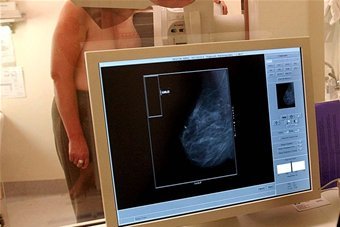Women with the faulty gene that causes aggressive breast cancer may soon have an alternative treatment to having a mastectomy.
Researchers at the Walter and Eliza Hall Institute have been able to pinpoint the so-called “culprit cell” that goes awry and causes cancer to develop in women carrying the faulty BRCA1 gene, which affects about one in 400 Australian women.
Importantly they were able to find a particular protein on the surface of the cells that could represent a new way of targeting and preventing the cancer from developing.
Professor Geoff Lindeman, from the Walter and Eliza Hall Institute of Medical Research, said they found the drug denosumab, which is used to treat osteoporosis or breast cancer that has spread to the bone, could be “repurposed” for BRCA1 patients.
“That’s very exciting because hopefully we can switch off these culprit cells before they go on to produce breast tumours,” Professor Lindeman said.
“We’re optimistic that if it works it would be the sort of strategy that would help young women buy time before they need to consider the issues of mastectomy.”
A clinical trial will be undertaken to determine whether the drug could be used for the more aggressive cancer seen in BRCA1 patients, who are typically young women.
“We’re very hopeful that this new approach using denosumab as an inhibitor could offer hope for women who are at very high risk for breast cancer,” Professor Lindeman said.
“Really, there isn’t a proven prevention drug at this stage and so we’re very hopeful.”
A major study is expected to get underway in the next two years.
“But by being a prevention study, it could often take five to 10 years to know the outcome of those studies, but I’m certainly hopeful that this sort of finding will be helpful for the next generation of women,” Professor Lindeman said.

